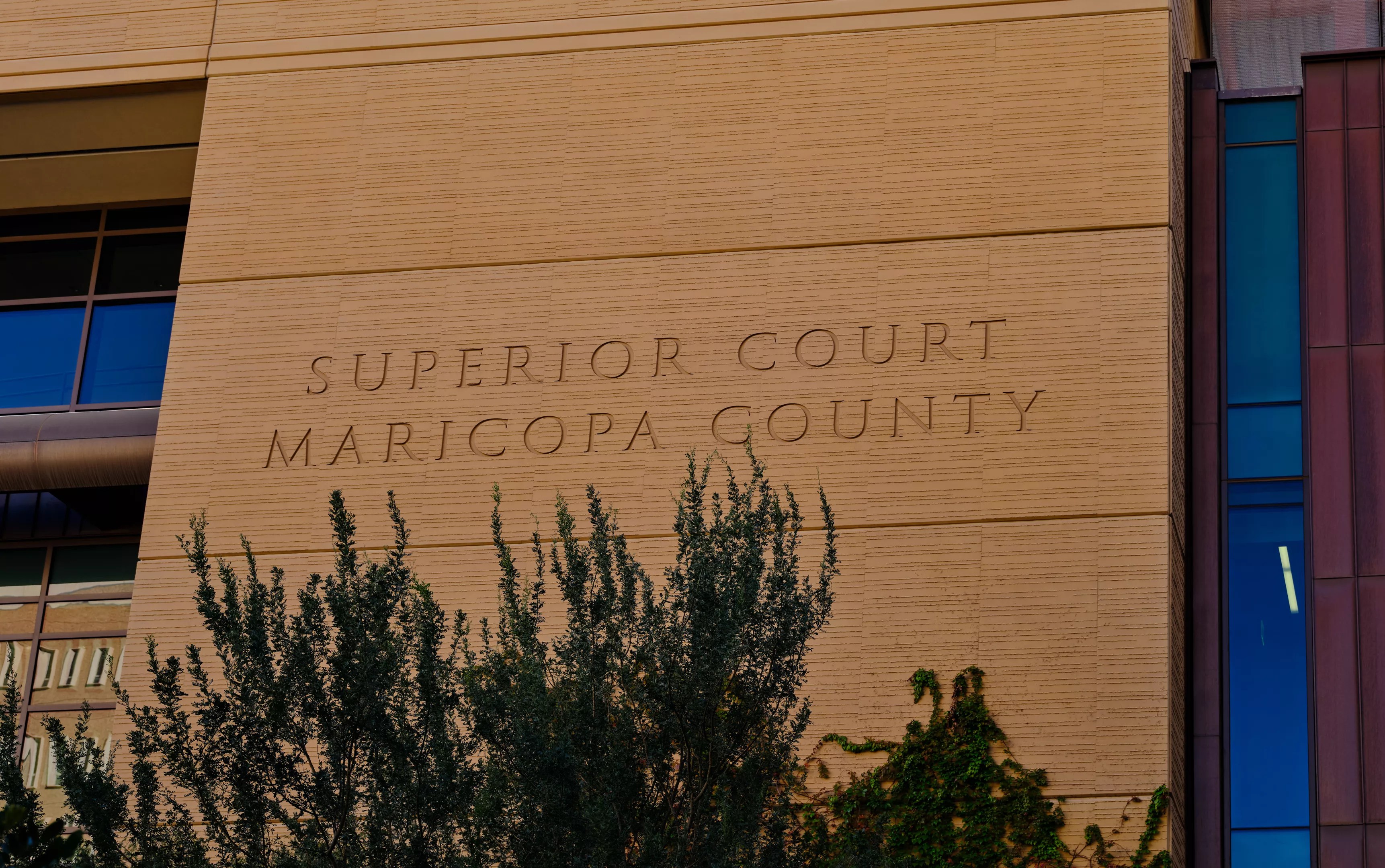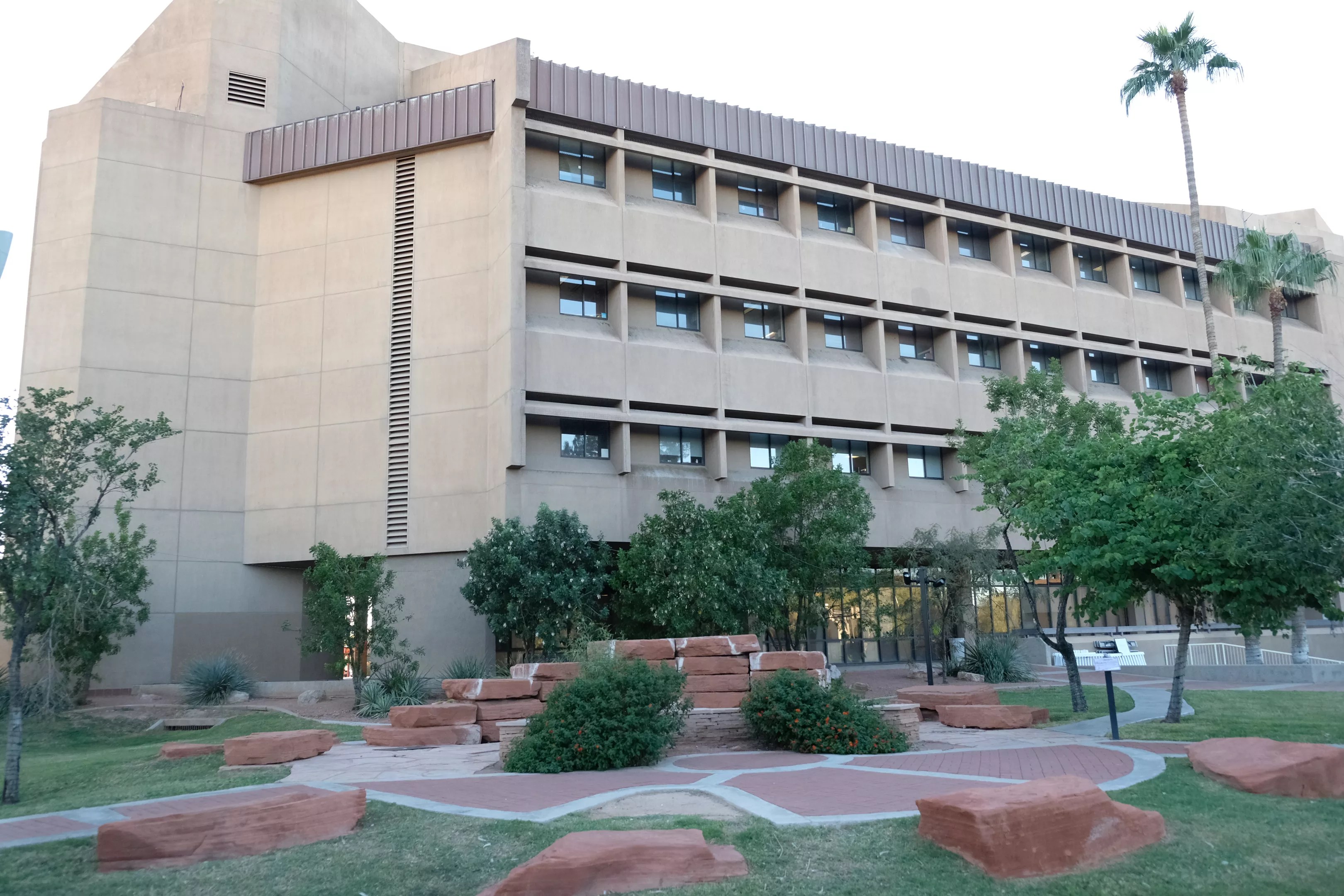
Reza Estakhrian/Getty

Audio By Carbonatix
Editor’s note: This story was published Aug. 6 and updated Aug. 7 to include a statement from Worker Power on the judge’s decision.
***
On Monday, a Maricopa County Superior Court judge ordered the city of Glendale to process a ballot initiative that it had rejected on constitutional grounds. The initiative, dubbed the Hotel and Event Center Minimum Wage and Wage Protection Act, was backed by the Worker Power political action committee and turned into the city with 8,900 petition signatures – almost 50% more than the required number.
The proposed law establishes a $20-per-hour minimum wage baseline for hotel and event center employees and outlines details for yearly pay increases and overtime earnings, among other provisions. It would cover employees of any hotel within city boundaries as well as workers at event centers larger than 20,000 square feet. This includes concert halls; stadiums, such as State Farm Stadium, the home of the Arizona Cardinals; and convention centers.
Last month, Glendale and City Clerk Julie Bower rejected the measure, claiming it violated the Arizona Constitution’s single-subject rule, which requires proposed ballot initiatives to address only a single issue and express those issues in its title. Worker Power sued, arguing that the initiative complied with the single-subject rule and requesting a preliminary injunction to force Glendale to process the initiative for the November ballot.
Judge Scott McCoy agreed, ruling on Monday that the initiative “embraces ‘one general subject'” as the single-subject rule requires.
“Today’s decision by the Superior Court is a tremendous victory and affirms what we already know: voters deserve the opportunity to weigh-in (sic) on the issues that affect them and their community,” Worker Power Executive Director Brendan Walsh said in an emailed statement. “The City’s latest attempt to thwart the will and rights of voters is blatantly undemocratic (and) we are grateful that the Court saw through it. We remain committed to lifting the voices of working-class families.”
Glendale, which previously had asked McCoy to dismiss Worker Power’s suit, has appealed the decision. That means that even though Glendale must now prepare the initiative for voters in November, the legal fight over its spot on the ballot is far from over.

Worker Power, a political action committee behind a ballot initiative to raise the minimum wage for hotel and event center workers, is asking a Maricopa County Superior Court judge to force Glendale to put the proposed law on the November ballot.
Tony Webster
‘Insufficiently related’
Filed on July 19, Worker Power’s lawsuit claimed Bower and the city applied too narrow a definition of the constitution’s single-subject rule in barring the initiative from the ballot.
In its motion to dismiss, Glendale claimed the proposed law’s title was too broad and did not sufficiently inform voters of what the law contains. Additionally, the city argued that the initiative’s provisions are “insufficiently related to one another.”
The bill does have a litany of provisions. It would:
- Raise the minimum wage for hotel and event center workers to $20 an hour, with a yearly adjustment for cost-of-living increases
- Set a baseline number of rooms attendants can clean per day before receiving overtime pay
- Outlaw requiring hotel and event center employees to work more than 10 hours per day without written consent
- Mandate that 100% of hotel service fees be passed on to the workers providing those services
- Establish a city labor standards agency to investigate violations of the new law and penalize violators
In court records, the city claimed the initiative “does not sufficiently notify the public of other material provisions” – such as establishing a new city department – and could “mislead the public to believe that it solely regulates ‘wages’ and ‘wage protections.'” In a reply, Worker Power essentially called that reasoning bogus, pointing out that the establishment of an enforcement agency to police violations of the new law would seem to relate clearly to the rest of the law’s provisions.
“It strains credulity,” Worker Power wrote in its reply, “to argue that a department dedicated to enforcing a right to a higher wage is unrelated to that right or somehow unrelated to ‘wage protection.'”
Notably, Glendale’s interpretation of the single-subject rule is much narrower than the courts have applied recently. Last month, a Maricopa County Superior Court judge rejected a lawsuit that challenged the constitutionality of the controversial Secure the Border Act, which was referred to the November ballot by Republican state lawmakers.
That law contained several loosely related provisions – arguably more loosely related than those in Worker Power’s initiative – including making it a state crime to enter the country illegally and upping the penalties for selling fentanyl. However, a county judge decided that all of those provisions are related to the general subject of “responses to harms related to an unsecured border.”
Several immigrant advocacy groups have urged the Arizona Supreme Court to weigh in and overturn that ruling.

Worker Power contends that the Glendale city clerk acted outside her authority when she rejected a ballot initiative because it violated the single-subject rule of the Arizona Constitution.
Katya Schwenk
‘They have their agenda’
The constitutionality of Worker Power’s initiative is for the court to decide. But whether the proposed law is good policy will be left up to voters if it makes the ballot.
Arizona’s hotel industry appears firmly against the proposal. The Arizona Lodging and Tourism Association and the American Hotel and Lodging Association both filed friend-of-the-court briefs in support of the city’s position in the lawsuit. In a press statement and in court documents, the AzTLA claimed the bill would harm the economy, forcing hotels to drive up room prices and deter tourists.
“A new wage mandate on the tourism sector will cause prices to spike and cost jobs, hurting the very people the union-backed proponents claim they represent,” said AzLTA President and CEO Kim Grace Sabow in an emailed statement. “The Glendale tourism industry is thriving with so much to offer for visitors while creating great, well-paying jobs. Why would we want to put all that at risk?”
Worker Power and other advocates see the bill as a matter of fairness. Last year, the U.S. Bureau of Labor Statistics reported the average wage for metro Phoenix “maids and housekeeping cleaners” is $17.18 per hour. That’s roughly 50 cents more than the national average, but proponents of the bill say the amount still leaves many employees living paycheck to paycheck, often working multiple jobs to pay for necessities.
In a press release issued when the lawsuit was filed, Walsh said, “Glendale has repeatedly taken steps to prioritize the profits of businesses over working-class residents who power its burgeoning hospitality industry.”
That release also included a quote attributed to Glendale homeowner Ana Martinez, who said signing the petition gave her hope that the workers who help fuel the city’s thriving hospitality economy would finally be treated fairly. She said she was disappointed that the city blocked the initiative.
“Every time residents try to take steps to shape how Glendale develops, the city doesn’t seem to care,” Martinez said. “It’s like they have their agenda, regardless of what would be good for most residents.”